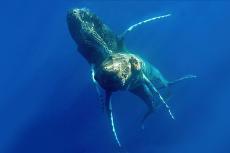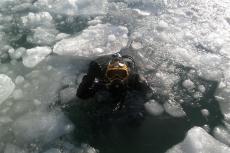
Oceanography, the comprehensive study of the world’s oceans and seas, encompasses a broad range of topics, from the physical dynamics of the ocean to the life forms that inhabit its depths. As an interdisciplinary field, oceanography integrates principles from biology, chemistry, physics, and geology to explore the complex interactions within marine environments and their effects on global ecosystems and climate. Whether studying the movement of ocean currents, the chemical composition of seawater, the geological features of the ocean floor, or the diverse organisms that populate marine ecosystems, oceanographers contribute vital knowledge to our understanding of the natural world. This article guides those interested in pursuing a career in this fascinating field, outlining the necessary educational paths, skills, and experiences required to become an oceanographer.
What Does an Oceanographer Do?
Oceanographers are scientists dedicated to the study of the oceans—their processes, dynamics, and life forms. They play a crucial role in addressing some of the world’s most pressing issues, including climate change, marine biodiversity loss, and pollution. Through field studies, laboratory experiments, and theoretical modeling, they investigate the physical movements of ocean currents, the chemical balance of seawater, the geological structures beneath the sea, and the biological systems within it.
The scope of work in oceanography can vary widely. Physical oceanographers might deploy buoys to monitor currents and ocean temperatures. Chemical oceanographers could analyze water samples to study pollution levels or the effects of acidification on marine life. Biological oceanographers may focus on the behaviors and interactions of marine species, while geological oceanographers examine the composition and history of the ocean floor.
Given the field’s diversity, a prospective oceanographer might ask, “Can I specialize in more than one area, or should I focus on one specific aspect?” The answer often depends on one’s educational background and specific interests. Furthermore, students and professionals alike often seek assistance from services to write my paper or research proposals, highlighting the importance of effective communication and documentation in sharing their scientific findings with the academic community and the public.
Educational Pathways
To embark on a career as an oceanographer, one must first establish a solid educational foundation in the sciences. Most professionals in the field begin with a bachelor’s degree in oceanography, marine science, or a related discipline such as environmental science, biology, chemistry, physics, or geology. These undergraduate programs provide a broad understanding of basic scientific principles and introduce students to more specialized topics in marine studies.
Advanced degrees are often essential for those wishing to delve deeper into research or secure higher-level positions in academia or industry. A master’s degree in oceanography allows students to specialize in a particular area of the field, such as chemical oceanography or marine biology. These programs typically combine coursework with hands-on research projects, which are crucial for gaining practical experience.
For those aspiring to lead research projects or teach at the university level, a Ph.D. is usually required. Doctoral programs in oceanography focus heavily on original research, culminating in a dissertation that contributes new knowledge to the field. Throughout these advanced studies, students will work closely with advisors and peers on complex research questions that can have significant implications for our understanding of marine environments.
Choosing the Right Institution
Selecting the right institution is a pivotal step in becoming an oceanographer. Prospective students should look for universities that not only offer degrees in oceanography or marine sciences but also boast strong reputations for research and fieldwork opportunities. Key factors to consider include the breadth of the curriculum, the expertise of the faculty, and the availability of modern facilities and equipment necessary for advanced scientific research.
Well-known institutions like Scripps Institution of Oceanography, Woods Hole Oceanographic Institution, and the University of Washington offer renowned programs in this field. These schools are equipped with state-of-the-art laboratories and have access to oceanographic research vessels and equipment, providing students with invaluable hands-on experience. Additionally, these institutions maintain strong partnerships with governmental and private organizations dedicated to marine research and conservation, which can facilitate internship and employment opportunities post-graduation.
When evaluating potential schools, students should also consider the geographical location. Institutions located near the coast may offer easier access to the ocean for practical field studies, which are essential for a comprehensive education in oceanography. Visiting campuses and speaking with faculty and current students can provide deeper insights into the program’s strengths and the overall student experience.
Gaining Relevant Experience
Practical experience is crucial in the field of oceanography, as much of the learning involves hands-on activities and real-world observations. Students should seek opportunities to participate in internships and fieldwork that complement their academic studies. These experiences not only enhance learning but also build professional networks and improve job prospects after graduation.
Internships with marine research institutes, environmental organizations, and governmental agencies like the National Oceanic and Atmospheric Administration (NOAA) can provide practical skills and exposure to professional environments. These roles often allow students to work on significant projects, such as monitoring marine biodiversity, studying the impacts of climate change on ocean systems, or developing sustainable fishing practices.
In addition to internships, undergraduate and graduate students should engage in research projects under the guidance of a mentor. Many universities encourage students to assist in faculty research, offering opportunities to co-author scientific papers and participate in international conferences. These experiences are invaluable for developing critical research skills and can be instrumental in deciding whether to pursue a career in research or a more applied aspect of oceanography.
Skills and Qualifications
Successful oceanographers possess a diverse set of skills, both scientific and interpersonal. Proficiency in data analysis is essential, as oceanographers often work with large datasets to track trends and make predictions. Familiarity with tools like GIS (Geographic Information Systems) and statistical software can be advantageous in managing and interpreting spatial and quantitative data.
Physical skills such as scuba diving may also be required, especially for those specializing in marine biology or underwater geology. Certifications in diving and boat handling can greatly enhance a researcher’s ability to collect data in various marine environments.
Soft skills are equally important; strong communication abilities are necessary to articulate findings and advocate for marine conservation effectively. Oceanographers must also be adept at problem-solving and critical thinking to be able to tackle complex environmental issues with innovative solutions.
Takeaway
Becoming an oceanographer involves a blend of rigorous academic training and hands-on experience in the field. By pursuing a relevant degree, choosing an institution with strong resources, gaining field and research experience, and developing both technical and soft skills, aspiring oceanographers can prepare themselves for a successful career in this vital and exciting field.
The journey to becoming an oceanographer is challenging but immensely rewarding, offering the chance to make significant contributions to our understanding and preservation of marine environments. For those passionate about the ocean and its myriad mysteries, a career in oceanography can be a fulfilling pursuit that combines scientific exploration with real-world impact.



















